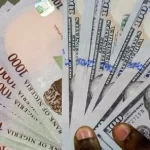First batch of petrol, 27 million litres imported by an independent marketer has arrived in the country, putting an end to a downstream monopoly market once enjoyed by the Nigerian National Petroleum Company Limited.
The vessel, ST Nnene earlier billed to arrive since last week, but was held down off Lome waters due to adverse weather, birthed at Ijegun-Egba on Wednesday following the official end to subsidies by President Bola Tinubu on May 29.
ST Nnene had cost Emadeb Energy’s Chief Executive Officer, Adebowale Olujimi, and its bank partners of $17m (about N13b) to hire.
Five financial institutions- Polaris, First Bank, Union Bank, Access Bank and Fidelity bank had bankrolled the deal.
This was as foreign exchange rose from N745 to one dollar three weeks ago, to N845 as of Tuesday, and crude price rising to $80 per barrel as of 1:45pm Nigerian time on Wednesday.
Until now, state oil firm NNPCL had enjoyed a monopoly downstream market for years. The firm had singlehanded imported petrol consumed in-country, and had dictated prices.
Since the end of subsidies which cost the country about N12tn, prices of petrol had risen from an average of between N180/N200 per litre, to N614 per litre as of Tuesday.
While speaking at the ceremony, Olujimi said petrol importation was no longer sustainable.
According to him, resuscitating local refining was the way to go.
He said, “Petrol importation is not a sustainable way for a country to run. From what we saw yesterday when PMS price rose to over N600 per litre, it is an indication that the dynamics of the business is a tough one. It requires huge US dollars to bring in this. The way forward is for local refineries to be revived,” he said.
Representing the Chief Executive Officer, the Nigerian Midstream and Downstream Petroleum Regulatory Authority, Farouk Ahmed, Sadiq Bashir, explained that the development was an important milestone since the downstream sector was deregulated.
He said, “This is what we have been looking forward to. When we talk about deregulation, people think it’s all about increasing prices. No. Although prices would now be determined by market dynamics, deregulation also opens up the market for other players to come in.
“Yes, we would experience teething problems at first; however, if market forces are allowed to come into play, prices would eventually go down due to high competition. We assure that NMDPRA would continue to ensure quality control of products being sold to the public.”
General Secretary, the Natural Union of Petroleum and Natural Gas Workers, Afolabi Olawale, also canvassed for local refining.
He said, “If we want to go for deregulation, we should not go for importation. We should not submit our economy to be determined by foreign firms. But since we are there now, the government needs to speed up on palliatives because things are hard on everybody. We also enjoin marketers to shun excessive profiteering.”
The National Controller Operations, the Independent Petroleum Marketers Association of Nigeria, Mike Osatuyi, said issuing licences to independent marketers to import would give rise to competition and fairness in the downstream sector.
He advised marketers to satisfy their customers by selling at fair prices, and dispensing the correct quantity. (Culled from Punch with modification on headline.)










More Stories
We face exclusion from Tinubu – PDP Governors
Naira depreciates to N1,620/$ in parallel market
Buhari’s ex-AGF, Malami, rallies opposition against Tinubu, says country enmeshed in severe poverty, insecurity